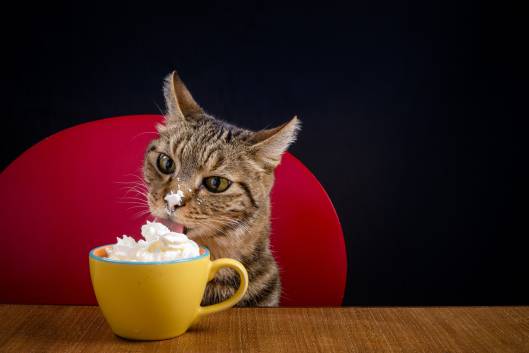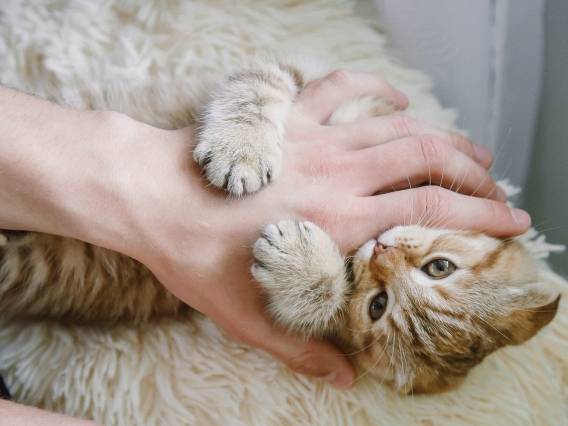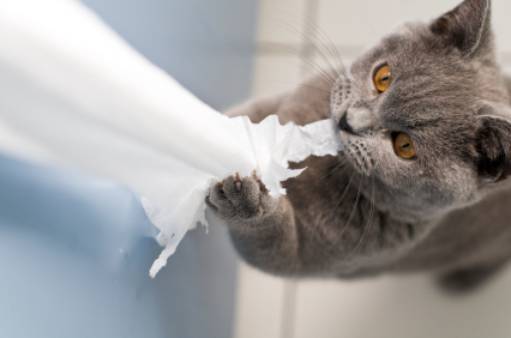Connect with a verified veterinarian in minutes. Licensed vets are available 24/7 to answer your questions. No need to worry about your furry family member.
Cats love to try many different foods. They may be tempted by the smell or see their pet parents eating something yummy! One thing that seems to attract cats is whipped cream! But what happens if a cat eats whipped cream?
Has your cat eaten whipped cream? Are you worried the whipped cream will make your cat sick? If so, you’ve come to the right place. We understand how scary it can be when your cat eats something like this.
We’ve gathered information about whipped cream and whether it can make a cat sick. Let’s get started!
What is Whipped Cream?
Whipped cream is a fluffy, sweet topping that can be used in desserts, baking, and other foods. It’s made from heavy cream beaten until it becomes light and fluffy. Sugar is usually added, though some people add a little vanilla to the mix for a little more flavor. Whipped cream is pretty rich, and it’s a favorite with many people!
Here are the nutrients found in 1 tablespoon of whipped cream:
- Calories: 29
- Total fat: 2.9 g
- Cholesterol: 10 mg
- Carbohydrates: 0.5 g
- Potassium: 18 mg
- Protein: 0.4 g
- Calcium: 1%
You don’t get much nutritional value from whipped cream, but it sure does taste good!
While whipped cream is safe for humans (in moderation), what about cats?
Whipped Cream & Cats
The good news is that whipped cream is not toxic to cats! However, it’s not very healthy for them, either. The main issues are that it contains dairy and sugar. These have no nutritional benefits for a cat.
In addition, most cats are lactose intolerant, which means they can’t digest the lactose in milk and other dairy products. Sugar is also not healthy for cats. For one thing, cats are not able to taste sweet flavors, and too much sugar can lead to obesity and diabetes.
So, if your cat licks a little whipped cream, she should be OK. However, if your fur baby eats a lot of whipped cream, she could become sick.

Review symptoms, medications & behavior to keep your pets healthy with a Vet Online in just minutes.
Ask a Vet Live NowSymptoms of Whipped Cream Ingestion in Cats
You may notice these symptoms if your cat has eaten whipped cream:
- Diarrhea
- Vomiting
- Nausea
These symptoms should stop within 12 to 24 hours; however, if they last longer than that, it’s best to call the vet. The concern is that your fur baby could become dehydrated from chronic vomiting and diarrhea.
Treatment of Whipped Cream Ingestion in Cats
The vet has medications to stop diarrhea and vomiting. They also have medicine to treat your kitty’s nausea. If your feline companion has become dehydrated, the vet may also treat her with fluids given via IV.
The prognosis is excellent for most cats—they should make a full recovery after eating whipped cream! In the future, it’s a good idea to keep whipped cream and other dairy products out of your cat’s reach. You’ll both be happier for it!
Connect with a verified veterinarian in minutes. Licensed vets are available 24/7 to answer your questions. No need to worry about your furry family member.

Julie
Julie is a graduate of the University of North Carolina, Wilmington, where she studied Animal science. Though contrary to the opinion of her parents she was meant to study pharmacy, but she was in love with animals especially cats. Julie currently works in an animal research institute (NGO) in California and loves spending quality time with her little cat. She has the passion for making research about animals, how they survive, their way of life among others and publishes it. Julie is also happily married with two kids.
Review symptoms, medications & behavior to keep your pets healthy with a Vet Online in just minutes.
Ask a Vet Live Now




